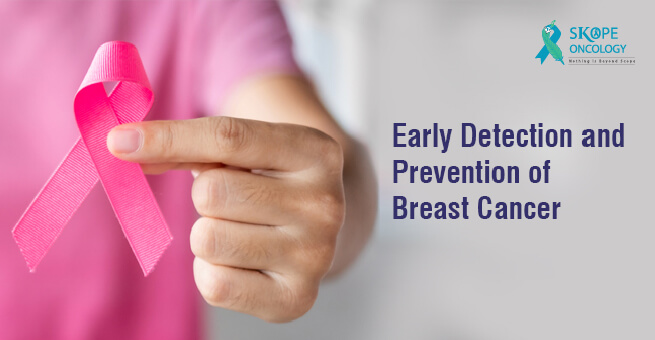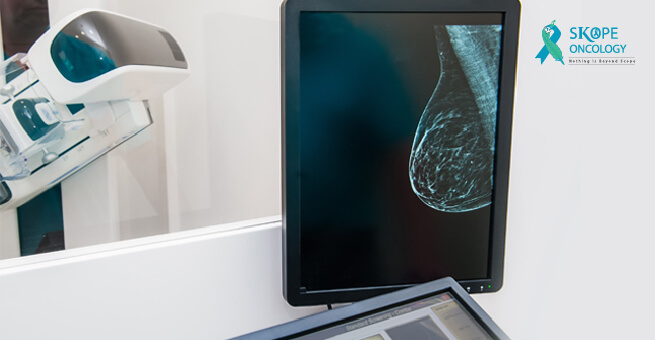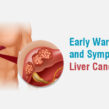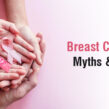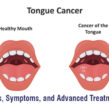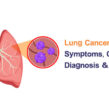Breast cancer is the most common cancer among women in India, accounting for 27.6% of all cancers in women. Early detection and prevention of breast cancer can help reduce the risk of developing the disease and can also improve the chances of successful treatment.
In this blog, we will discuss the significance of early detection and prevention, as well as learn about early signs and symptoms and preventive measures.
What are the early signs of breast cancer?
Breast cancer symptoms vary from person to person. The following are possible signs of breast cancer.
- A painless lump or thickening in or near the breasts or underarms
- Changes in breast size or shape
- Dimpling of the breast skin
- Tenderness and/or nipple discharge
- Redness, scaliness, or thickening of the breast or nipple skin
- Breast swelling (complete or partial)
- A rash on or around the nipple
However, some people do not notice any signs of breast cancer. Getting regular screenings is thus the most important step in the early detection and prevention of breast cancer.
What are the preventive measures for breast cancer?
Women should begin getting regular mammograms at age 40 and should continue to get them every year or two. Mammograms can detect breast cancer in its early stages, when it is most treatable.
In addition to regular screenings, there are other steps that can be taken to reduce the risk of developing breast cancer.
Preventive measures for breast cancer include the following:
Regular self-exams
Women should regularly self-examine their breasts to look for any changes.
Clinical breast exams
Women should have a clinical breast exam every three years beginning at the age of 20 and annually after the age of 40.
Healthy lifestyle
Women should maintain a healthy weight, exercise regularly, limit alcohol consumption, and avoid smoking.
Avoid hormone therapy
Women should avoid hormone therapy, such as oestrogen and progesterone, unless absolutely necessary.
Avoid radiation exposure
Women should avoid unnecessary radiation exposure, such as from X-rays and CT scans.
Breastfeeding
Women should breastfeed their babies for at least six months, as breastfeeding is known to significantly reduce the risk of breast cancer.
Avoid long-term use of birth control pills
Women should avoid taking birth control pills for more than five years, as long-term use has been linked with a slight increase in the risk of breast cancer.
Avoid environmental toxins
Women should avoid exposure to environmental toxins, such as pesticides and air pollution.
Being aware of family history
Women should also be aware of their family history of breast cancer. If a woman has a family history of the disease, she should talk to her doctor about her risk and what steps she can take to reduce it.
Finally, women should be aware of the signs and symptoms of breast cancer. These include a lump in the breast, changes in the size or shape of the breast, changes in the skin of the breast, nipple discharge, and pain in the breast. If any of these symptoms are present, it is important to see a doctor right away.
Early detection and prevention of breast cancer are keys to successful treatment. By getting regular screenings, eating a healthy diet, exercising regularly, and being aware of the signs and symptoms of the disease, women can reduce their risk of developing breast cancer and improve their chances of a successful treatment.

